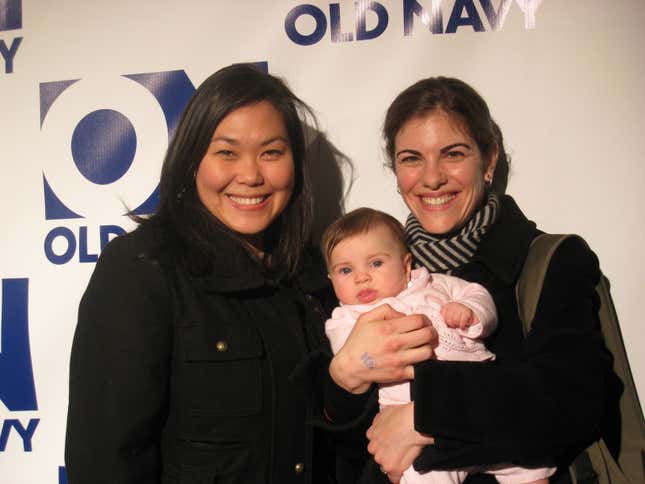When I was pregnant with my daughter, I was frequently paranoid during the day because of how still she was. Hours would go by with only the faintest signals from my belly that she was okay in there. But nighttime was different. As soon as I would settle myself in bed, the party would start. She was alive, and man, was she kicking.
Not much changed after she was born. Her days were peaceful, a series of long naps, easy feedings, and quiet rocking. And from 10 pm on, she was a beast.
I had read about sleep-training. I believed in the importance of a good night’s rest for kids. Part of me—the aspiring proper British nanny in me—desperately wanted to fix what was happening. But the real me was probably encouraging my daughter to be a night owl, maybe because her schedule, or lack thereof, fit so well with ours.
Today, I work with a lot of new parents. Their discussions about bedtime for infants generally revolve around whether 6 pm is better than 7 pm. I suspect they don’t even know there’s a third way–or the benefits that a more flexible attitude toward bedtime can bring.

I can’t explain why my baby girl would fall asleep at 6 pm and wake up three hours later, instead of just sleeping through the night. But I didn’t mind. It meant that we could haul her out to dinner in her baby carrier and have a peaceful meal with friends, and then take her home or to wherever else we went next. Later, when I went back to work, it meant that my husband and I had a bit of quiet time to discuss our day after we got home and could still get another round of bonding time with her before we all went to sleep for the night.
At times I wished we had a stricter routine. I felt ashamed talking to parents who gloated about their children’s 7 pm bedtimes and clockwork schedules. Often I would point fingers at my husband, who was generally opposed to the idea of being a bedtime enforcer. But the truth is, I loved that he grew sad at the thought of putting our kid to bed before sundown. And I was grateful to him for exposing our daughter to so many experiences. While her playmates were tucked into their toddler beds, she was going with us to art exhibit openings, or practicing her conversational skills with one of our friends who’d dropped by, or just enjoying time with her parents during a part of the day when we were all at our most relaxed.
Once my daughter started school, her need for an earlier bedtime became more urgent. And so my family adapted, although she wasn’t always cooperative. I would sometimes worry about whether nine hours was enough sleep for a kid whose classmates were regularly sleeping for 10-, 11- and even 12-hour stretches. Most days, however, our daughter didn’t seem much worse for the wear. And thankfully, our pediatrician reminded me of what most parents frequently forget: With kids, there is no normal. There are only averages.
The strictness with which we keep our daughter to her current bedtime—which is to say, minimally—is something of a running joke in our family. I chalk it up to a mix of our ambivalence, her own body clock, and what seems to me to be the near-impossibility for working parents to squeeze dinner, bath, homework, and downtime into an evening that’s expected to wrap up before 9 pm.
I certainly wouldn’t recommend later bedtimes for all children, or their parents. What I would recommend is this: Live your life in the way that makes you and your family the happiest. Give your children structure, but no more than they need. And rest up, all of you, because family life is a long ride–just don’t stress too much about the exact time at which the resting each night begins.




